'We can't play, but we can coach': The little school with the big NBA pipeline

On October 19, 1974, a rookie point guard for the Bullets named Stan Washington made his NBA debut. He logged four minutes. He attempted one shot. He did not score. Four days later, he was waived, and his career was over. Washington is still remembered at the University of San Diego because he is the only NBA player the school has ever produced. USD, a small Catholic college that sits on a mesa overlooking Mission Bay, has never been a basketball power. Since the Toreros started playing in 1955, they’ve won two regular-season conference championships and one NCAA tournament game. They’ve been overshadowed in their league by Gonzaga and in their city by San Diego State. And yet, on sidelines and in front offices at the highest levels of the sport, they can match up with just about anybody.
“The story of the USD mafia,” said Heat associate head coach David Fizdale, “is one of the unlikeliest basketball stories you’ll hear.” When Fizdale arrived on the Alcala Park campus in 1992, the team played in a tiny gym called the Sports Center with bleachers on one side of the court and a stage on the other, right behind the benches. “We were the Stage Crew,” Fizdale recalled. The best part of the gym was the outdoor pool that bordered it. The Toreros finished wind sprints and then did cannonballs.
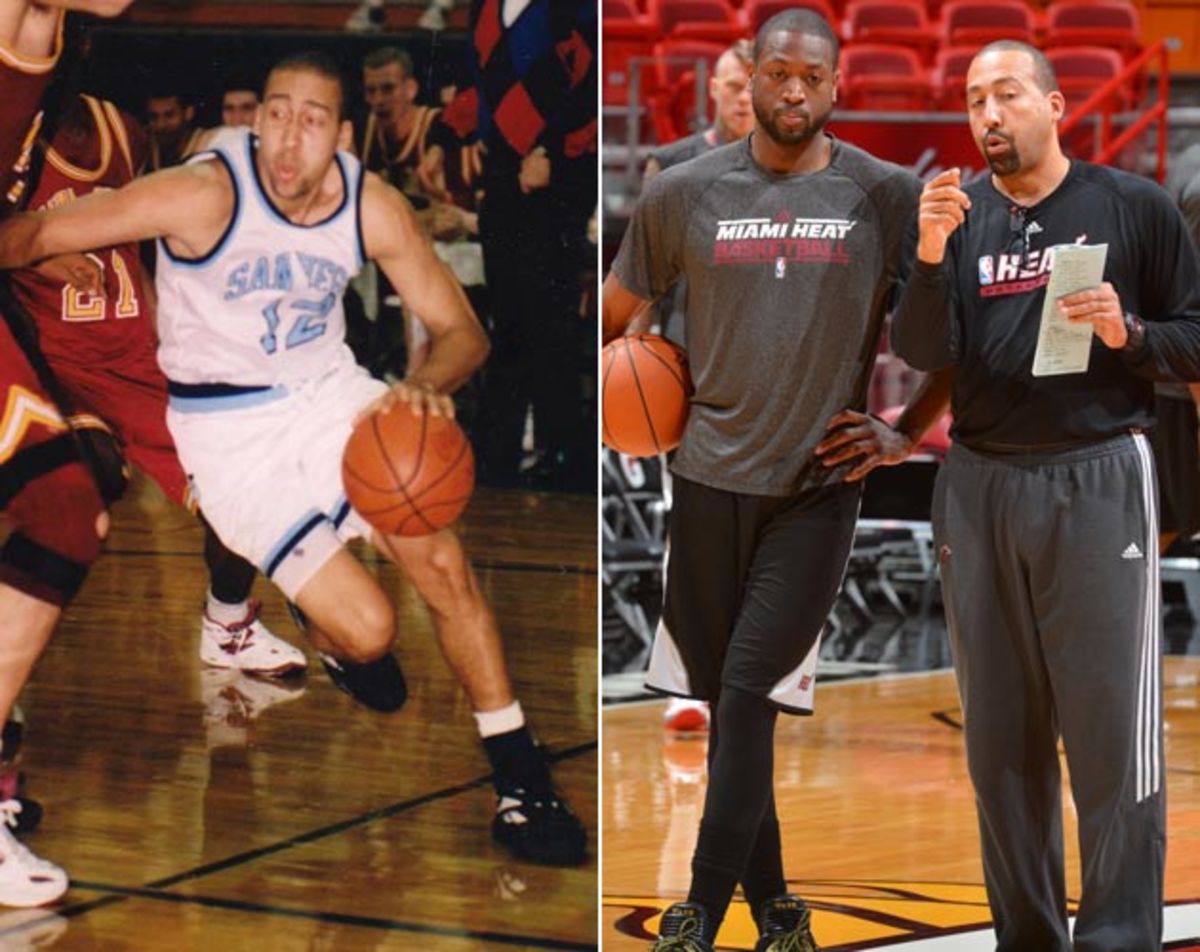
The head coach was Hank Egan, who had come from Air Force, where he tutored a heady point guard named Gregg Popovich. But Popovich was still just an anonymous Spurs assistant in the early ‘90s. When Egan wanted to dazzle players, he brought back San Diego alum Bernie Bickerstaff, already an NBA head coach. Bickerstaff held Nuggets training camps at USD and pre-season games at the nearby San Diego Sports Arena. Young Toreros marveled at Bickerstaff, who never played in the league but found a way to flourish there, and wondered if they could do the same. They termed him The Godfather.
Russell Westbrook opens up: All there really is to the Thunder superstar
In January ’92, USD lost at Colorado, and afterward Egan drove to Denver through a blizzard with school fundraising whiz Ky Snyder. They met Bickerstaff at McNichols Arena and Egan explained that a recently graduated guard wanted to work in the NBA. “Do you have an intern?” Egan asked. “No,” Bickerstaff replied. “But maybe I should.” A seed was planted and a tree grew out of the frozen earth.
Since that meeting at McNichols—which gave Mike Brown his big break—USD alums have been head coaches of the Cavaliers, Lakers, Warriors, Kings, Wizards, Bobcats, and currently on an interim basis for the Magic. They’ve been general managers of the Cavs and Pacers. They’ve been assistants for the Clippers, Blazers, Spurs, Hawks, Heat, Nuggets and Pelicans. They’ve expanded the post repertoire of LeBron James and the shooting range of Anthony Davis. They’ve drafted Kyrie Irving and helped discover Paul George. They’ve been champions, scapegoats, and everything in between. But they’ve all typically started in some dark video room, and upon finally seeing sunlight, passed their good fortune down.
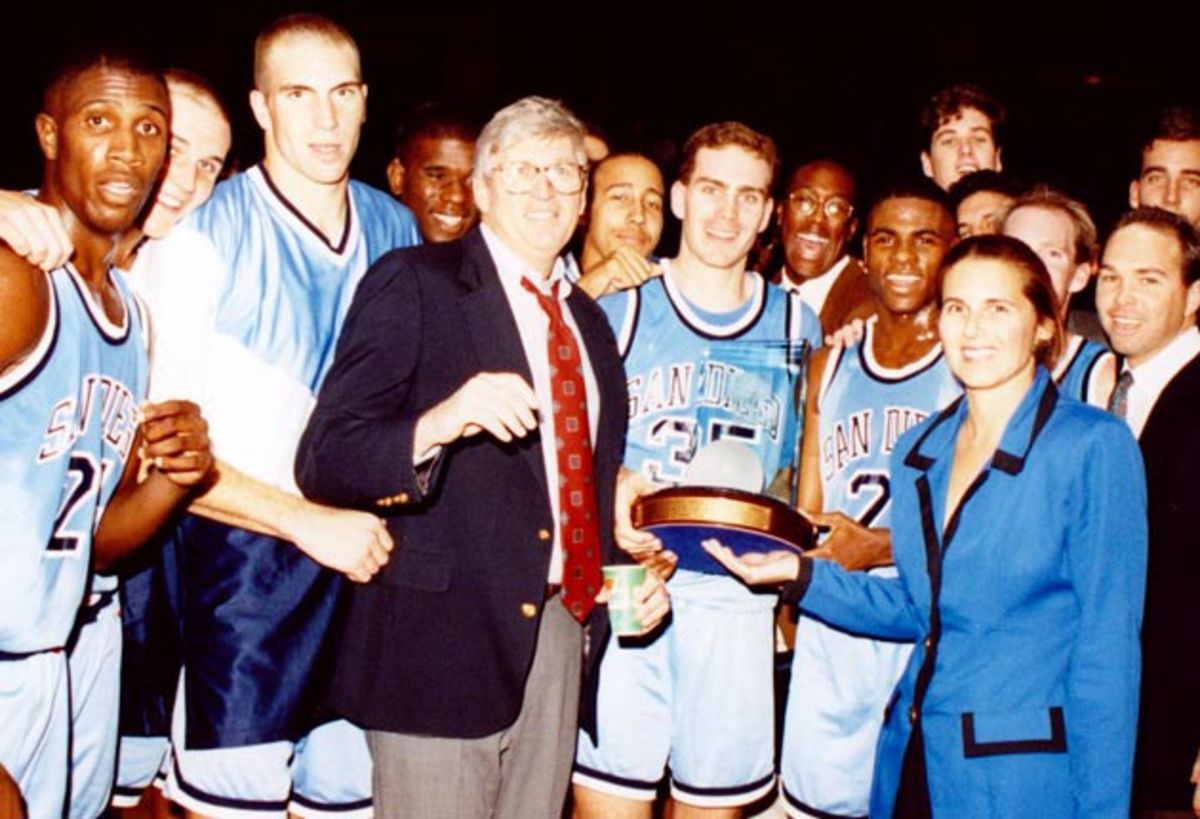
When Chris Grant finished playing at San Diego, Brown hooked him up with the video-room internship in Denver, and when Fizdale graduated, Brown called an old friend from the West Coast Conference, Erik Spoelstra. Fizdale succeeded Spoelstra in Miami’s legendary dungeon. When Golden State made USD alum Eric Musselman its head coach, he tabbed Fizdale as an assistant, and when they were fired, Fizdale applied in Atlanta. The interview lasted five minutes. Grant, moving swiftly up the Hawks’ ranks, had already stated Fizdale’s case. “The whole thing,” Egan said, “took on a life of its own.”
The overflowing legacy of Steve Nash
When Popovich hired Egan in San Antonio, they brought Brown along, until he was poached by former San Diego law student David Morway to be an assistant coach in Indiana and later by Grant to be the head coach in Cleveland. The chain continues. As Cavs GM, Grant awarded an internship to recent USD grad Corey Belser, who was then scooped up by Fizdale in Miami. Belser is now the assistant coach of the Heat’s D-League affiliate in Sioux Falls. One of Belser’s college teammates, Kevin Hanson, was nabbed by San Antonio and is currently in New Orleans. Popovich should be in line for an honorary degree.
“If you’re not a player, it’s hard to get into this league,” Fizdale said. “You need a small opportunity that you turn into a bigger opportunity. We are this little school on the hill. We feel like, ‘No one respects us. No one thinks we’re anything. We’re all we’ve got.’ So we look out for each other. You have to do a good job. You have to bust your hump. But if you do those things, we’ll help you out.”
Toreros are now in Milwaukee (where Morway and two former USD assistants work in prominent roles with the Bucks) all the way to the Middle East (where NBA senior director of operations Neal Meyer spreads the sport). They repeat their self-deprecating mantra: “We can’t play, but we can coach.” They celebrate each other’s successes—Brown claimed Coach of the Year in ’09, Grant swapped Mo Williams for the pick he turned into Irving in ’11, and Fizdale prodded the Heat to titles in ’12 and ’13—and mourn each other’s struggles. When Grant was fired last year, after assembling the roster that would eventually lure James back to Cleveland, Egan reminded him that everybody in this business loses a job.
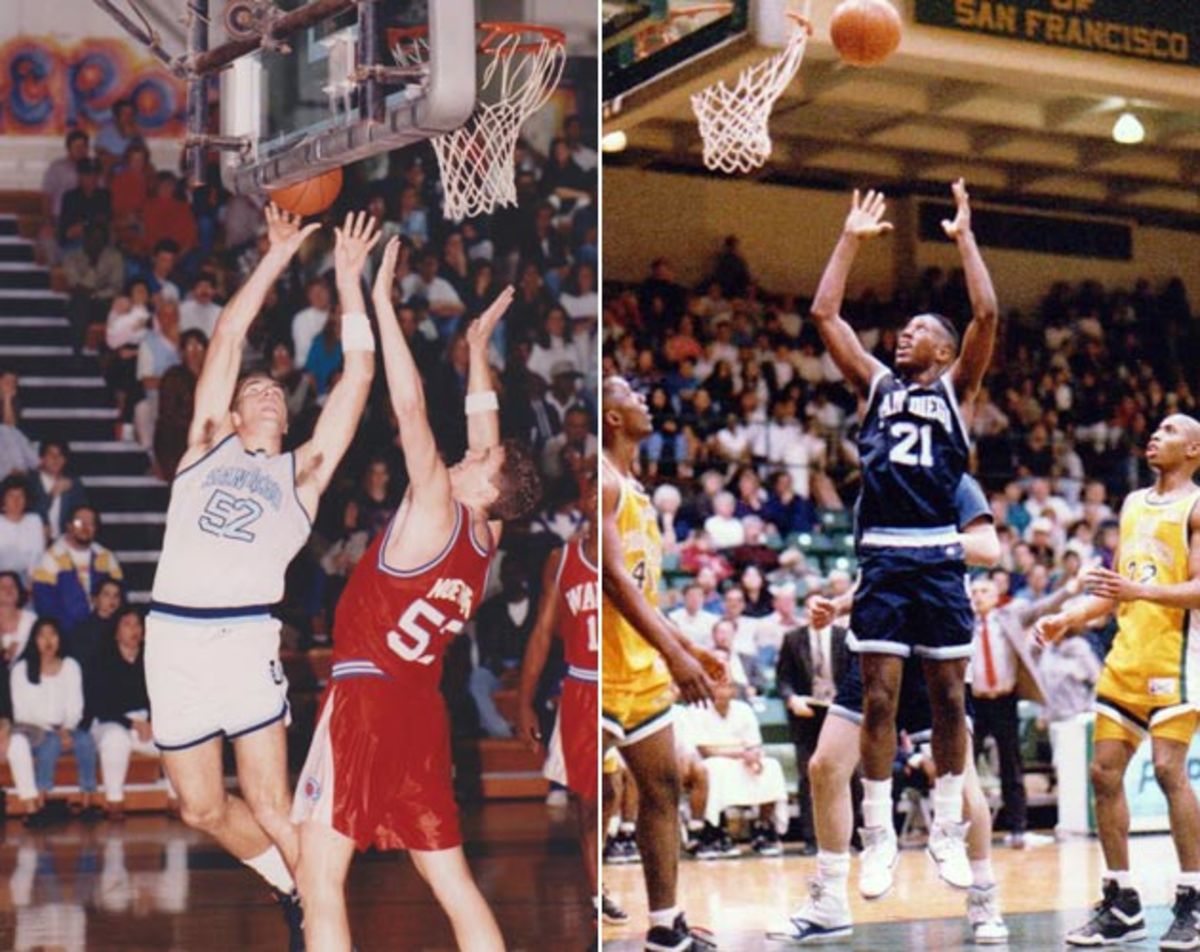
The Stage Crew still keeps up with their old squad, which in 2000 moved into fashionable Jenny Craig Pavilion, better known as the Slim Gym. They find it amusing that Nick Kerr, son of potential Coach of the Year Steve Kerr, is on the roster. Kerr’s special assistant in Golden State, Nick Uren, happens to be a former San Diego manager. The Crew is not outraged by losing records and early tournament exits. They understand the challenges faced by a small college with rigorous academic standards. But they have occasionally wondered why, when USD was turning out so many NBA-caliber coaches, did the school not snag one for itself? The last steward of the program was Bill Grier, from rival Gonzaga.
Ky Snyder, the fundraiser who chauffeured Egan through that Colorado snowstorm two decades ago, is now the San Diego athletic director. Last week, he hired 39-year-old Lamont Smith, who played for the Toreros when Egan was the head coach and Randy Bennett an assistant. When Bennett wound up as the head man at St. Mary’s, he brought Smith with him, and together they rebirthed the program. After Smith heard about the USD vacancy last month, he called Brown, hoping for a recommendation. Smith spent the past season at New Mexico and worked extensively with Brown’s son, Elijah, a transfer from Butler. “I was about to ask Mike for his help,” Smith said, “when he told me: ‘I’ve talked to Ky about this for a week, here’s exactly what’s happening, you’ll be in there tomorrow.’”
Smith considers how to best utilize the vast support system he has inherited. In living rooms, he can name-drop until he’s hoarse, with USD alum James Borrego already an NBA head coach and Fizdale up next, having commanded the respect of James, Dwyane Wade and Chris Bosh. Every recruit thinks he’s headed to the league, and when Smith promises starry-eyed 18-year-olds that he’ll get their tapes in front of the right decision-makers, he won’t be lying. But the best advantage Smith can offer won’t be realized until later, when those recruits become upperclassmen, and finally recognize they probably aren’t lottery picks. By then, some will be ready to leave the game. Others will do anything to stay.
They’ll beg for a job in the video room, and when they scroll through the eternal list of contacts on their coach’s phone, they’ll find one.
GALLERY: When NBA head coaches were players
When NBA Coaches Were Players
Jeff Hornacek
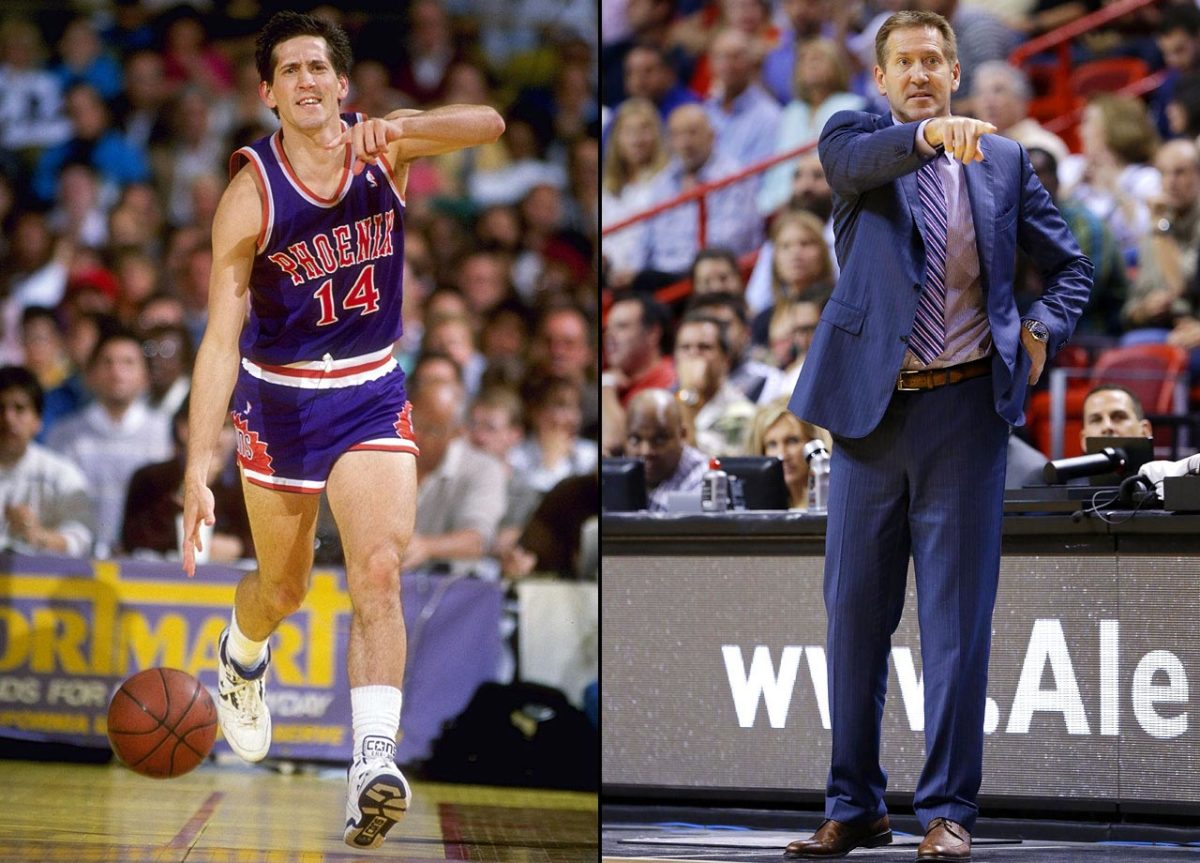
Jeff Hornacek played 14 seasons between the Suns, Sixers and Jazz and was named an All-Star in 1992. Hornacek was fired midway through his third season as head coach of the Phoenix Suns (14-35) in 2016. The Knicks hired Hornacek, who holds a career record of 101–112 in 213 games as a head coach, on May 18, 2016.
Rick Carlisle
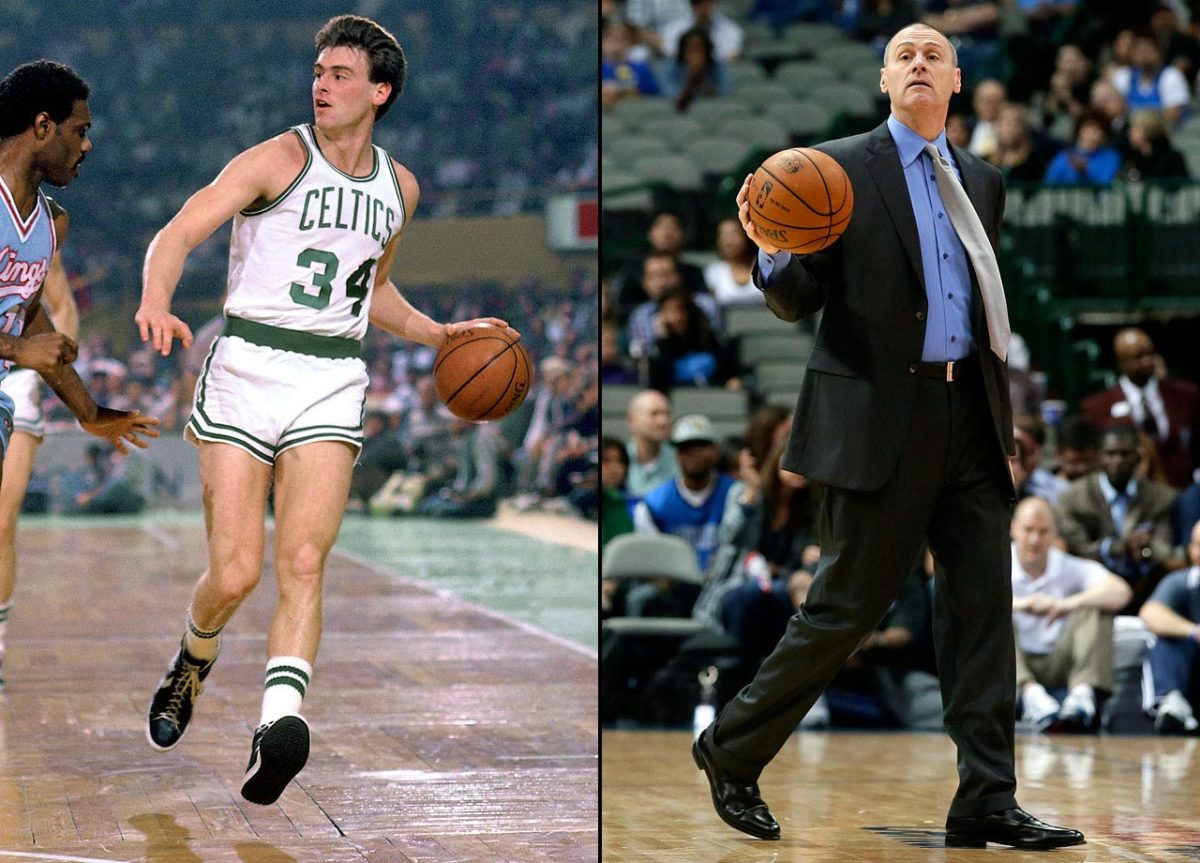
Rick Carlisle has won a title as a player (with the 1985-86 Celtics) and coach (2010-11 Mavericks). He's coached Dallas since 2008 after spending two years with the Pistons and four with the Pacers.
Doc Rivers
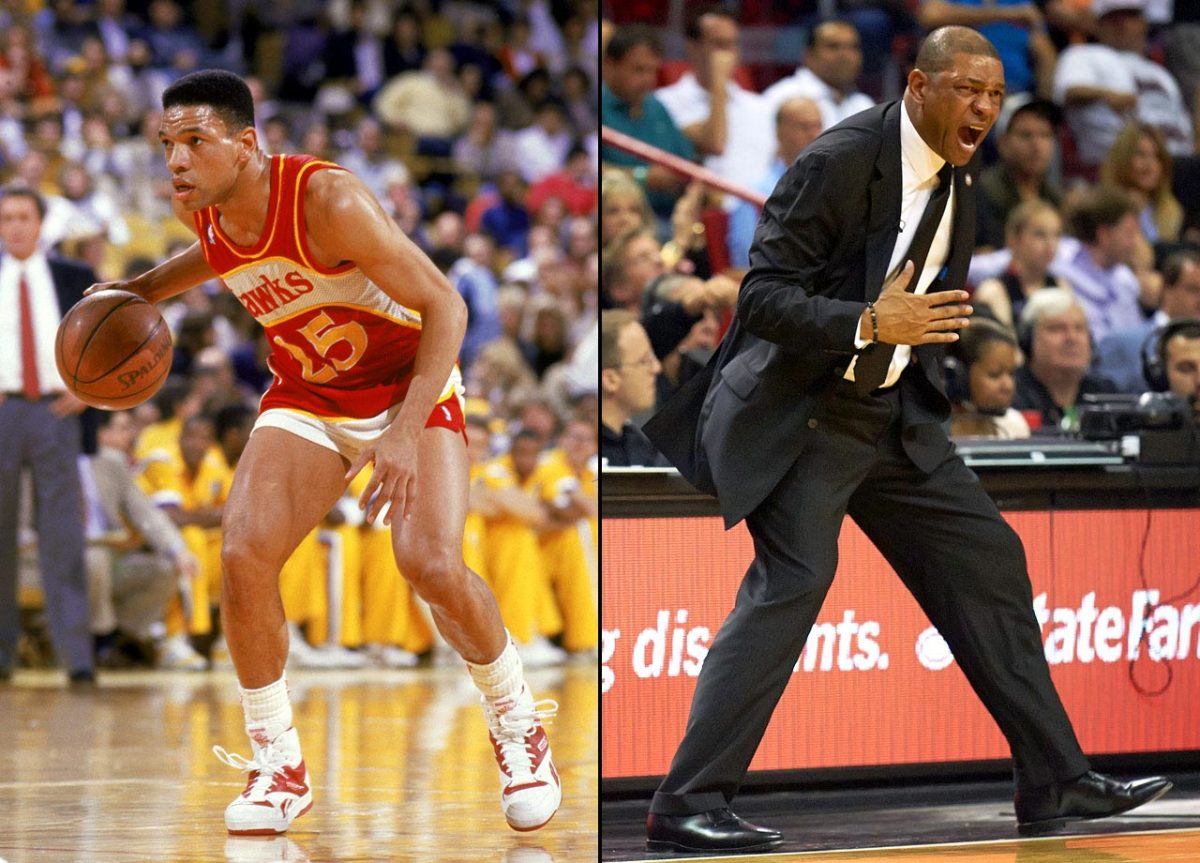
The Hawks picked up a reliable point guard when they selected Doc Rivers with the 31st pick in the 1983 draft. Rivers helped lead the Hawks to six playoff appearances in eight seasons, and he averaged 11 points and six assists in his 13-year career. He received his first crack at coaching with the Magic, in 1999, and won the Coach of the Year Award in his first season. Rivers later moved to Boston, where he won the 2008 title with Ray Allen, Paul Pierce and Kevin Garnett. He has been coaching the Clippers since 2013.
Jason Kidd
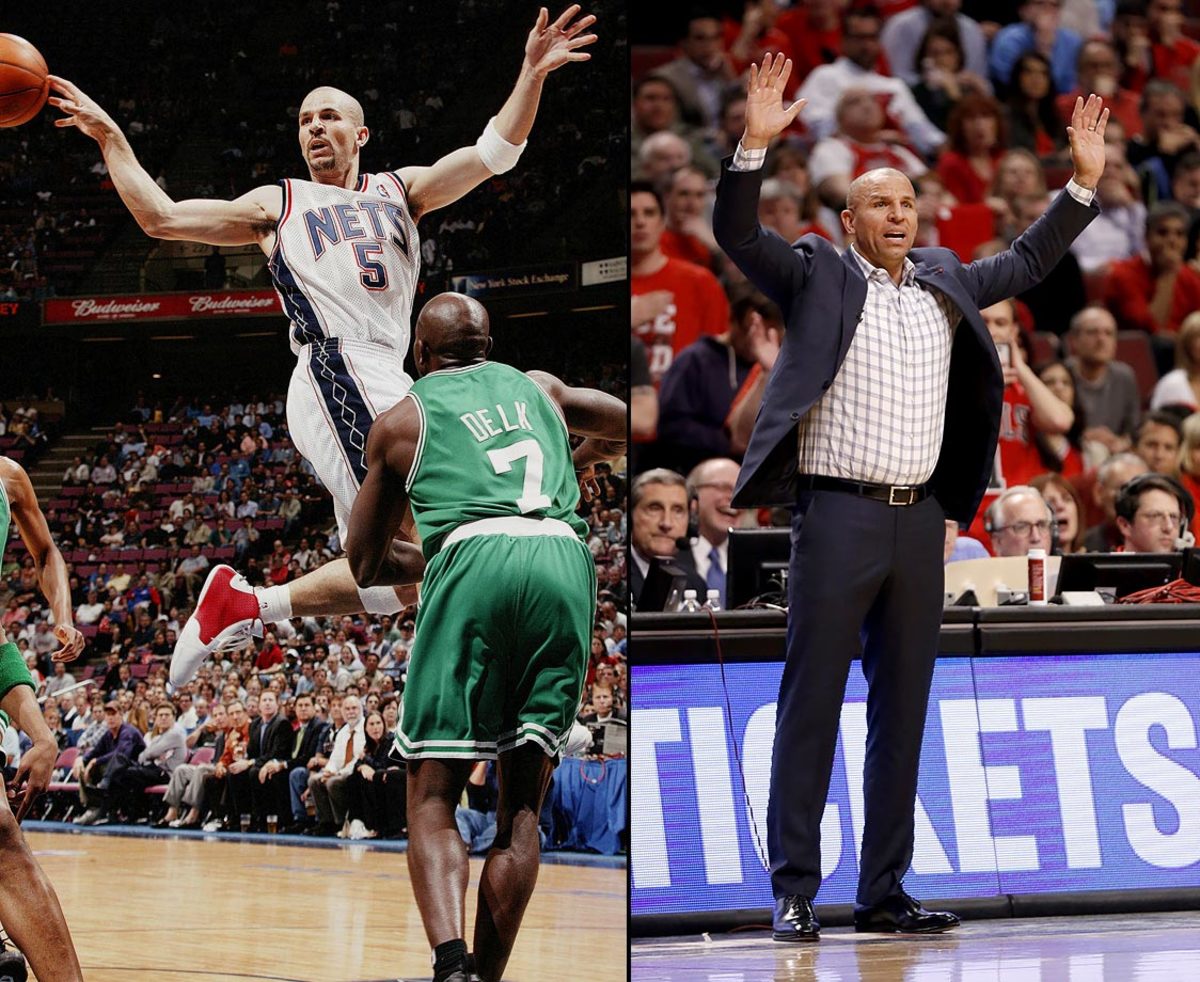
Kidd spent 19 years in the league, with the Suns, Mavericks, Nets and Knicks, before becoming Brooklyn coach just days after he retired in 2013. However, the 1994-95 Rookie of the Year, 10-time All-Star and 2011 champion with Dallas wore out his welcome with management and was traded to the Bucks after one season at the helm in which the Nets went 44-38 and lost in the Eastern Conference semifinals.
Steve Kerr
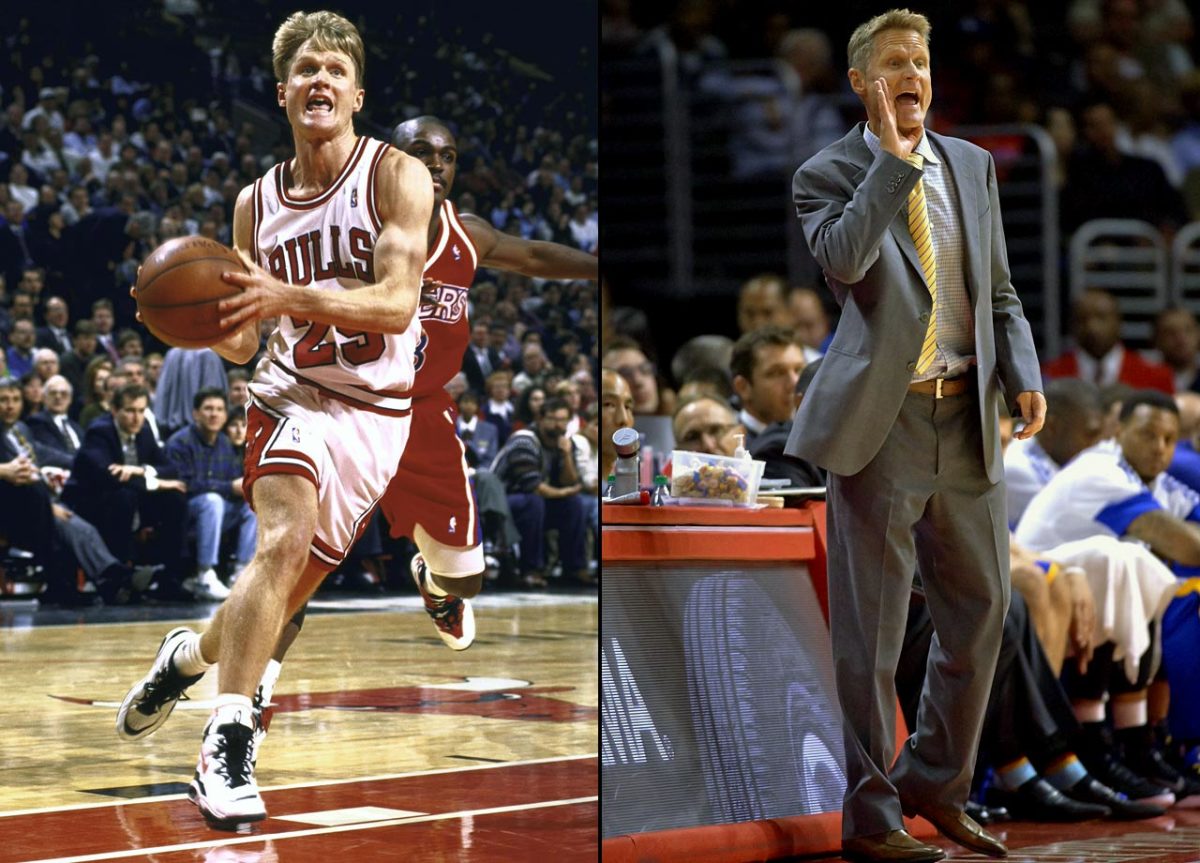
Kerr, a valuable role player who won three titles with Chicago and two with San Antonio, is the NBA's all-time leader in three-point percentage at 45.4. After distinguishing himself as a TNT broadcaster, Kerr became a hot coaching candidate despite lacking experience on the sideline. In May 2014, Kerr spurned the Knicks to become the Warriors' coach, which he led to a championship as a rookie coach.
Billy Donovan
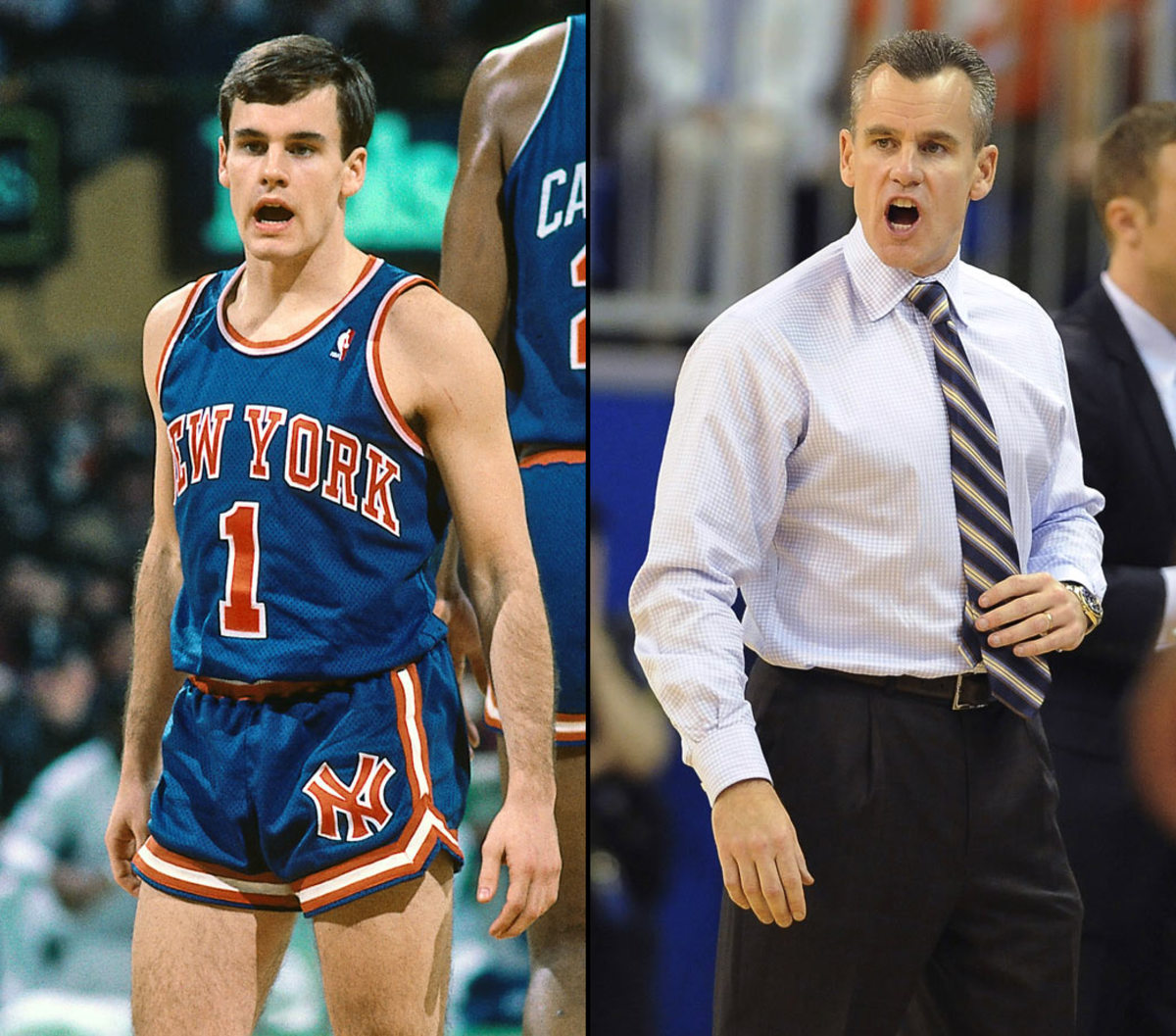
Drafted in the third round (68th overall) of the 1987 NBA Draft by the Utah Jazz, and later waived, Donovan played just 44 games off the bench with the 1987-88 New York Knicks. After 19 years coaching the Florida Gators, the Oklahoma City Thunder hired Donovan as their next head coach for the 2015-16 season.
Fred Hoiberg
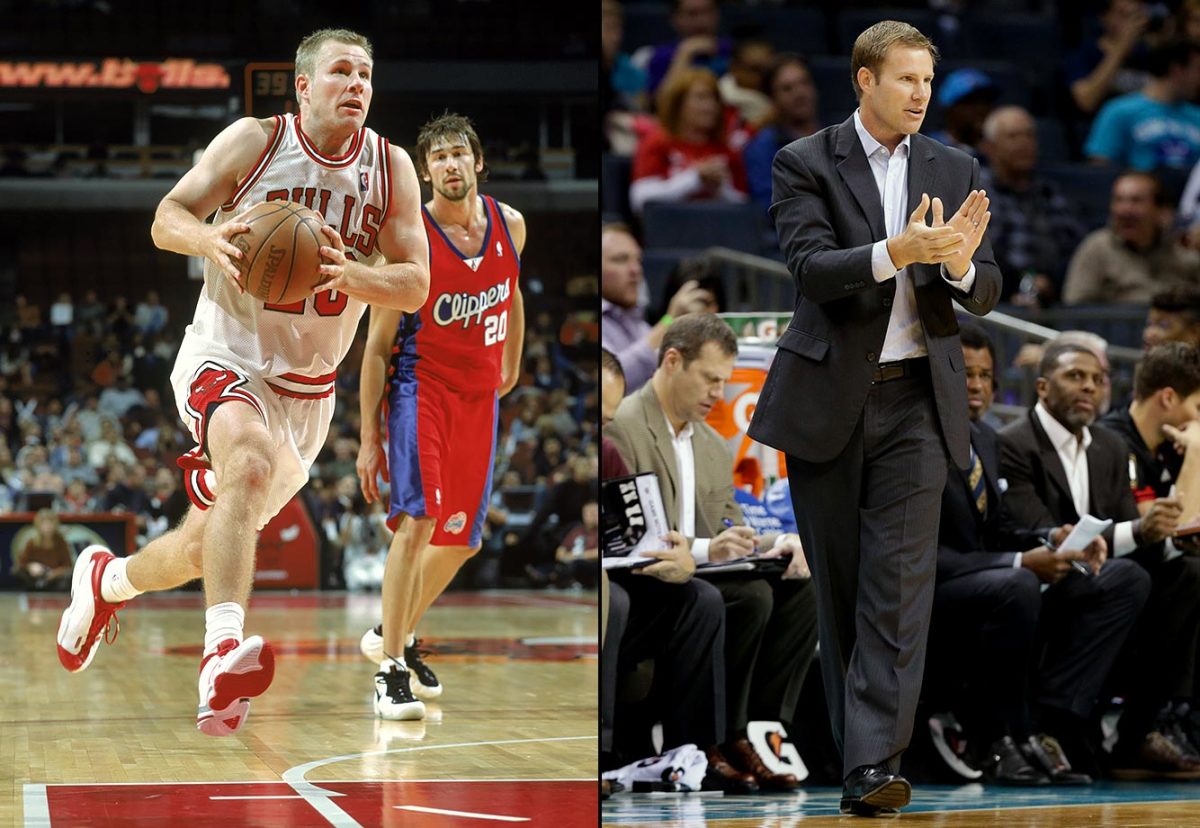
Drafted by the Pacers in the second round of the 1995 NBA Draft, shooting guard Fred Hoiberg played four seasons with Indiana, four with Chicago, and two with Minnesota. On June 2, 2015, the Bulls hired Hoiberg as head coach.
Tyronn Lue
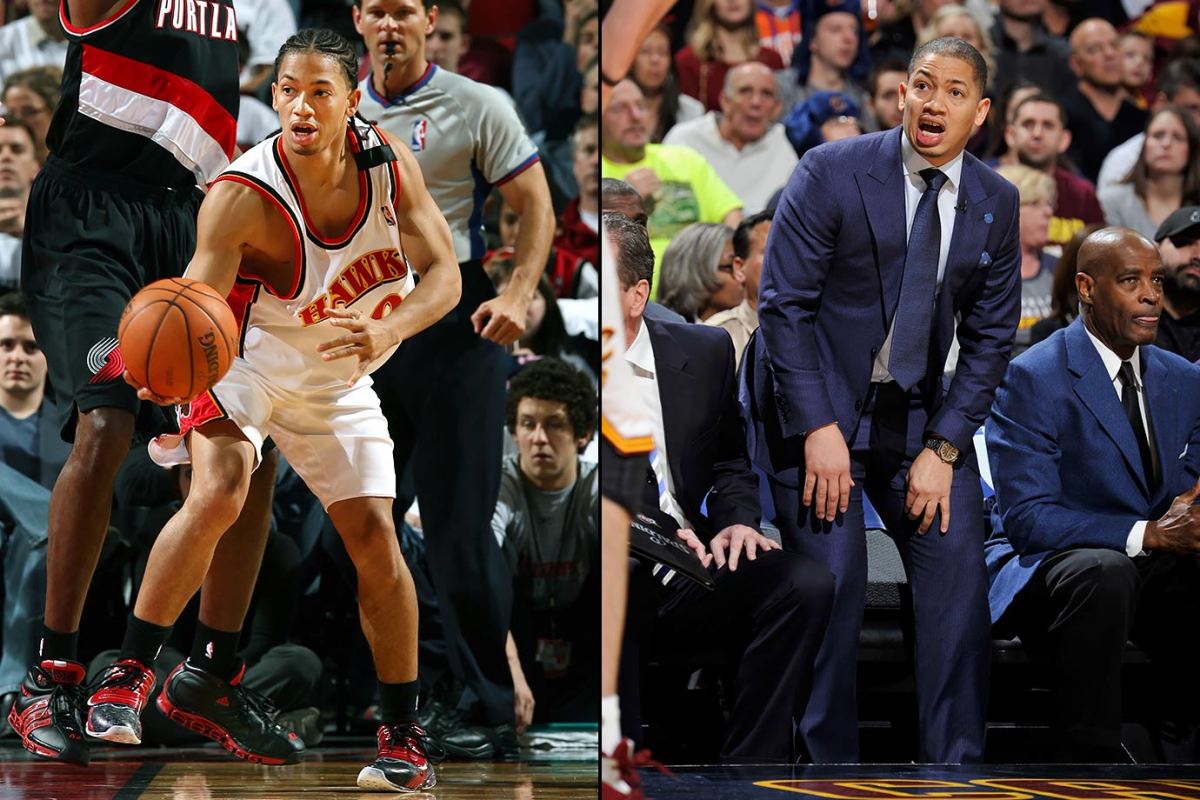
The No. 23 overall pick in 1998, Tyronn Lue played for seven teams over 11 seasons in the NBA. The Cleveland Cavaliers made Lue their full-time coach after firing David Blatt on Jan. 22, 2016.
Earl Watson
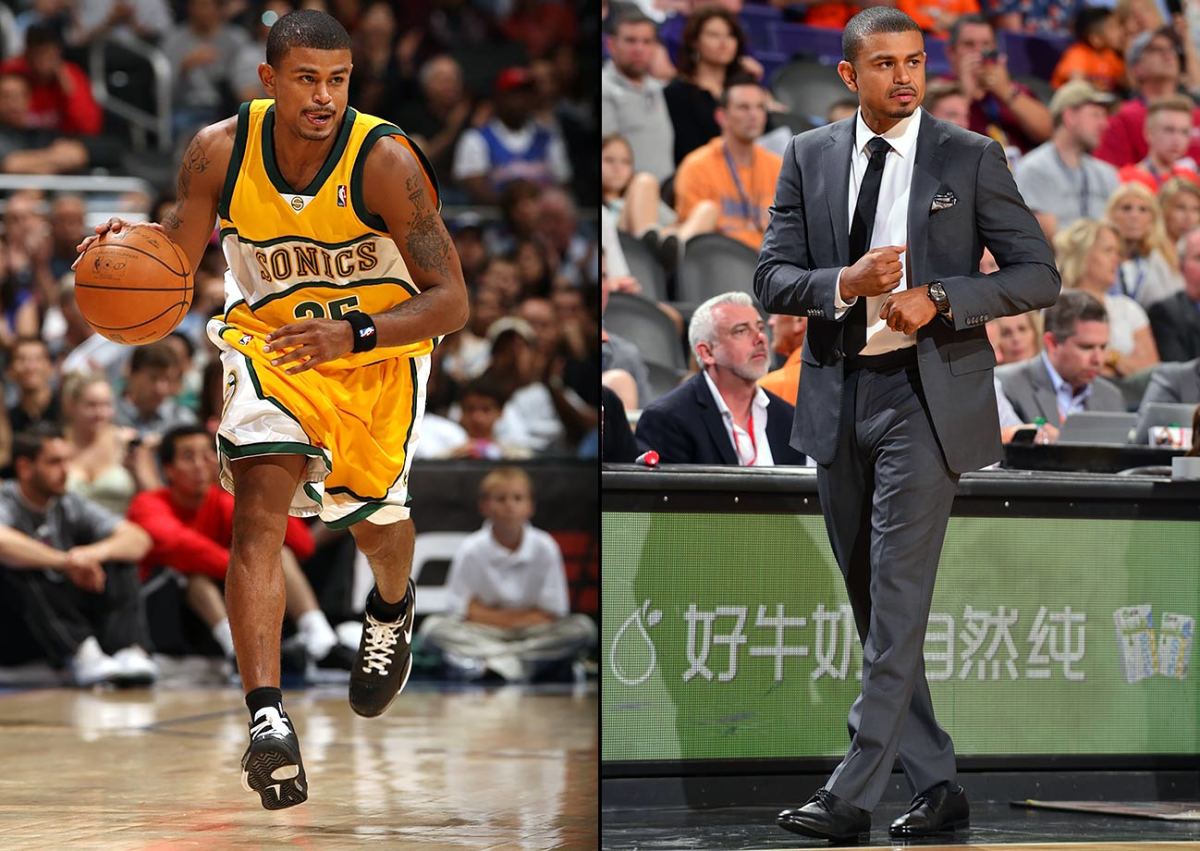
Earl Watson played for seven teams over 13 seasons in the NBA. At age 36, he became the league’s youngest head coach when he replaced the Phoenix Suns' Jeff Hornacek on an interim basis on Feb. 1, 2016. After their season ended, the Suns made Watson their full-time head coach.
Luke Walton
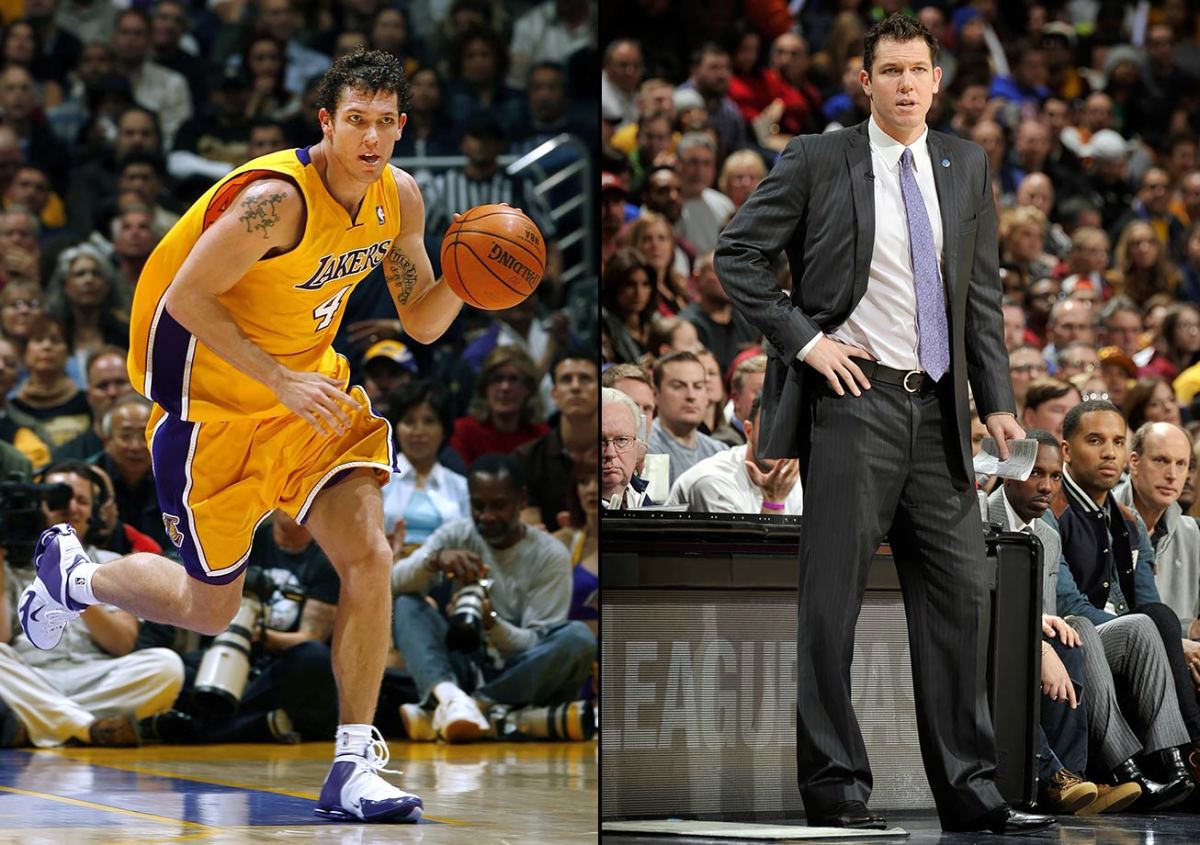
The son of former UCLA and NBA standout Bill Walton, Luke was a favorite of Lakers fans during his nine-year stint as a selfless, hard-working reserve player. In his first season as an assistant coach for the Golden State Warriors, the team won the 2015 NBA Finals. On April 29, 2016, the Los Angeles Lakers hired Walton to become their new head coach after the Warriors' season concludes.
Scott Brooks
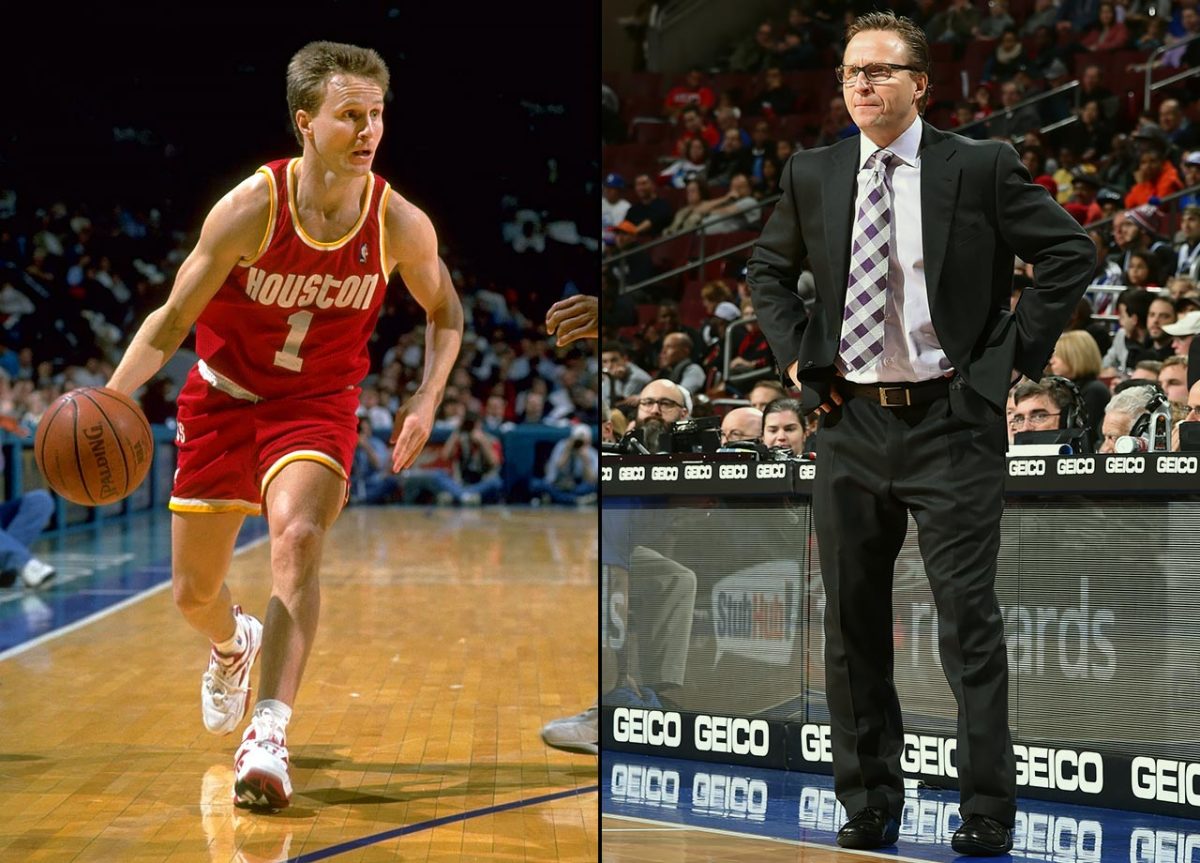
Though undersized at 5-foot-11, the scrappy Scott Brooks played 10 seasons for six teams and won a championship with the Rockets in 1994. He took over as head coach of the Oklahoma City Thunder one month into the 2008-09 season and was named NBA Coach of the Year in 2009-10. Brooks was fired by the Thunder following the 2014-15 season, after the team missed the playoffs for the first time in his six full seasons as head coach. On April 26, 2016, Brooks was hired to coach the Washington Wizards.
Nate McMillan
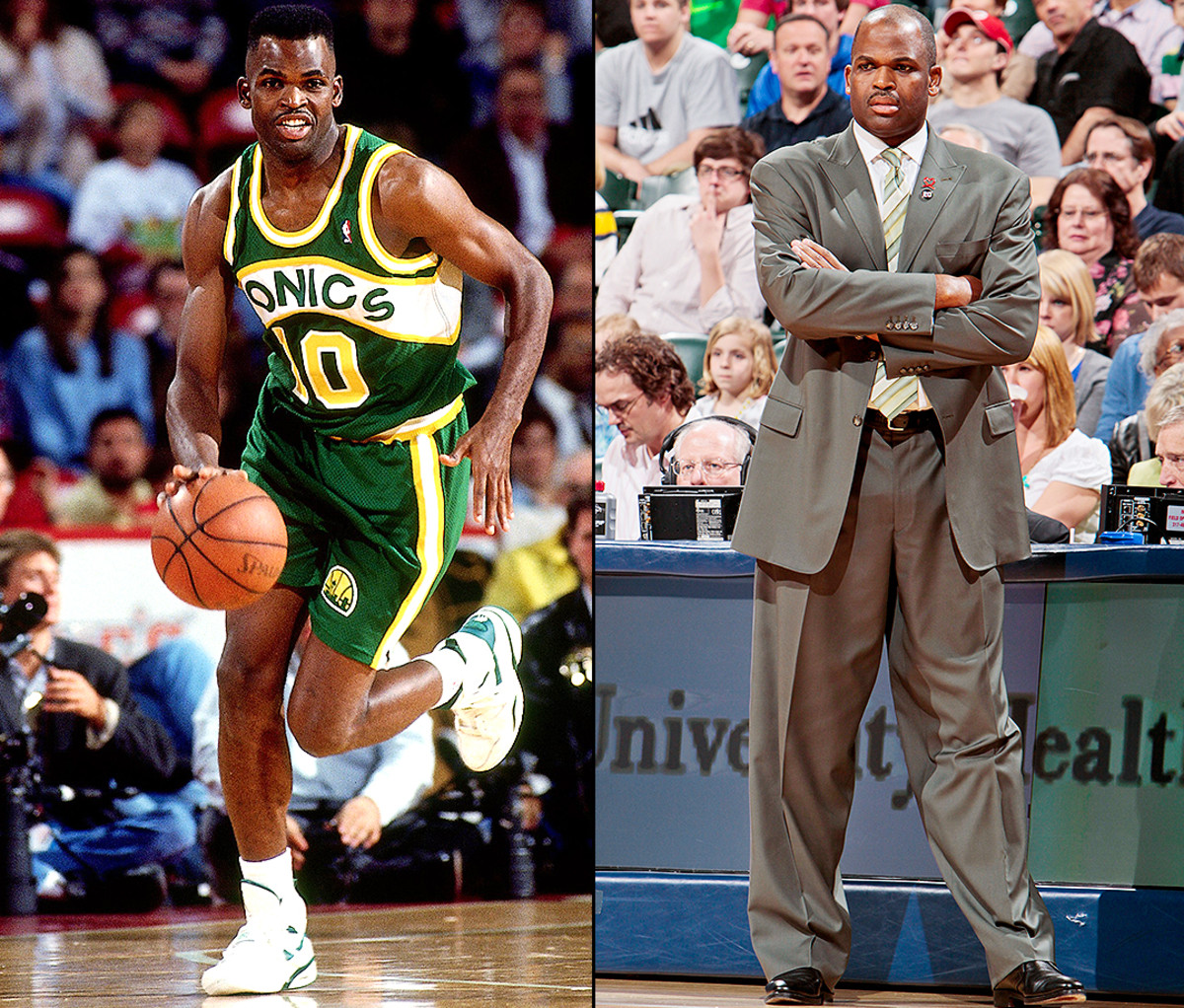
McMillan, a second-round pick of the SuperSonics in 1986, played 12 years in the NBA before his first head-coaching job with Seattle in 2000. McMillan then coached the Trail Blazers from 2005–12 before serving as a Pacers assistant.
